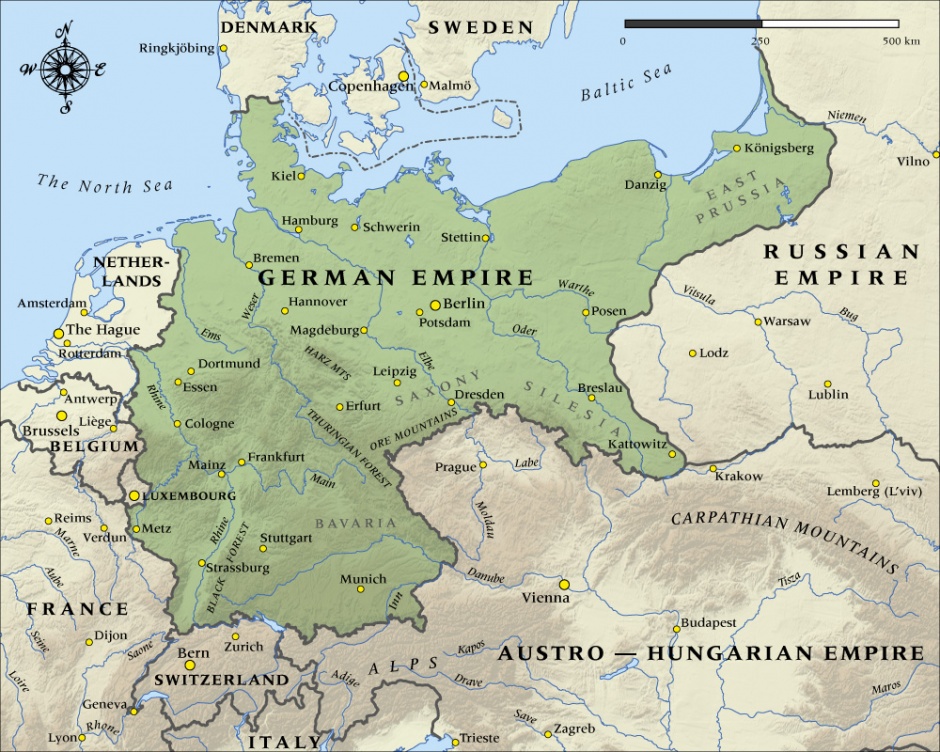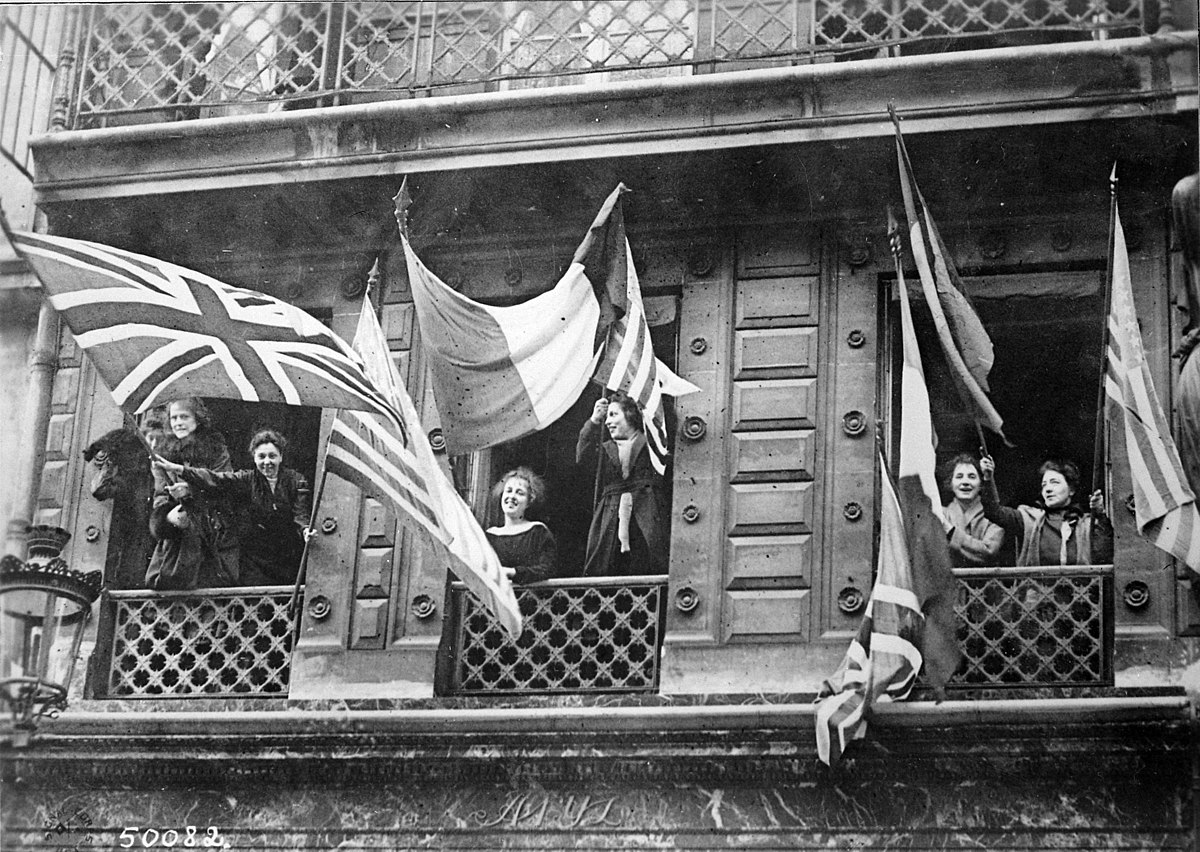I think if Germany won big quickly then future conflict would be inevitable. Simple power politics plus the character of imperial Germany. I can't see them being willing to accept that the interests of others matter.
That's the thing, Germany winning quickly would be a very different situation to OTL after WW1. Had they knocked out the Russians while France falls into infighting internally if not full blown civil war, it would be at least a generation before the Entente could threaten the CPs. Russia would no doubt be crippled by the defeat since that would mean civil war (and Germany carving up Russia while suffering no where near badly enough not to make their new client states stick), A-H would not be mortally wounded and may well be actually politically strengthened in victory, and France would be a basket case politically for quite a while after the disaster I laid out in earlier posts. Italy too would just throw in with the side that looks to be winning, so they'd be bound to the winners for the foreseeable future, which basically leaves the CPs the dominant alliance.
Britain might be an issue, but the balance of power would be way off at that point and if anything Britain might well be served cutting a deal with the CPs rather than trying to counter balance Germany, since France and Russia together wouldn't be strong enough allies and if anything a massive financial drain to Britain to keep them in any future war.
Actually Germany being the hegemon would end the power politics game in Europe, since there really wouldn't be anyone capable of overpowering them. Russia would have her progress derailed for a generation, France too would be thrown even further behind, while Germany, A-H, and Italy not suffering from a long drawn out war and territorial and economic gains plus have the benefits of winning the war and imposing a favorable peace would be tremendously more powerful than they were in the aftermath of Versailles. Losing WW1 dramatically retarded their growth and set back their power relative to other states enormously. Italy of course being on the winning side IOTL still suffered quite a bit worse than the other victors due to gaining so little, losing so much, and facing so much debt from their effort, virtually none of which would happen here given all the problems France would face without Britain and of course with all their internal issues.
In theory,yes.
In practice - Germans being germans would manage something that made all french get them again.
Except minus the ability of the French to do anything about it. France gained a lot from winning WW1 despite the manpower losses suffered; their industrial (developed during the war with British finance) and more importantly resource gains from territorial acquisition (Lorraine iron and Saar coal) were huge for their economy in the interwar period, which wouldn't happen here. Certainly France would be out before the worst of the manpower losses, but they'd likely lose their border forts and not gain any resources they had IOTL, nor would they have the chance to build up their industry; they'd just fall so much further behind, including in manpower relative to Germany, that they'd basically have to face facts that even with their colonies (some might be lost ITTL) they would only be a regional power in Europe without the resources to threaten their much stronger neighbor, especially if Russia was now a basket case.
Russians being russians would want their empire back,tsar ot not tsar.
Wanting and being able to do so are different things. Losing WW1, losing territory, having a civil war/revolution of some sort, etc. while their enemies are only relatively strengthened by the war would effectively relegate them to basket case status.
England being England would wait for first occasion to create great coalition against germany.
What coalition would that be? Italy would be bound to the CPs and France and Russia would be severely diminished relative to the CPs, so Britain would if anything have to change its tune and work out a deal with Germany as her only resort.
And in OTL they created situation where they made lithuanian and ukrainian state and planned to made polish one,but all that nations still hated them.So,gave germans 20 years,and all those buffer states would turn from supporters into enemies waiting for first chance to attack.
IOTL there wasn't really any plan settled on, just a bunch of proposals from a bunch of different actors. H-L won't be rising here if Germany goes East, which means Moltke would be the guy in charge and that changes everything anyway.

de.wikipedia.org
So maybe there are some annexations, perhaps there is a separate kingdom, perhaps A-H sets up a situation where Galicia is still part of the Habsburg empire. Each of our guess is as good as any other given how much things would change ITTL vs. OTL proposals; the only certainty is that Russia would lose Poland and Lithuania at a minimum. If they fall into revolution or even full civil war then Ukraine and Belarus, plus Finland and the Baltic states would be broken off and set up by the CPs.
We also haven't even gotten into the Ottoman role in all of this and the results of the Berlin-Baghdad RR being completed in a victorious CP scenario. Basically this is a British nightmare scenario.
No, it was it's own thing; they literally just marched in and occupied it for no other reason than to do so.
There was a reason, Luxembourg's rail network was vital to the invasion of France and mobilizing troops on the border. ITTL Germany would have to do so to mobilize defenses for the region:
If you check out the road/rail net of modern Luxembourg (no new lines have been constructed since WW1 AFAIK) you can see why it was so vital for transportation:

www.google.com
Plus of course Germany wanted the German speaking territory anyway, which was also quite economically valuable (iron and steel industry). Other than the Luxembourgish army being a joke (400 men) even the government and people just accepted annexation as inevitable:

en.wikipedia.org
Have you heard of the
September Agenda I think it was called. Checking I found it, see
Septemberprogramm for details. As early as September 1914 assorted significant political and economic interests in Germany were asked what Germany should get from the war and were talking about continued occupation/annexation of Belgium and chunks of France as well as a large colonial empire in central Africa and similar gains in the east.
Part of the problem was the militaristic mindset of the time, especially [but not only in Germany] and the perversion of Darwin's ideas of natural selection and 'survival of the fittest' The desire was for a lasting victory that kept all potential opponents too weak to oppose Germany again, which is actually a recipe for continued conflict and unrest.
Steve
That memo has been way overblown thanks to Fritz Fischer claiming it was the German annexation plan to make his 'sonderweg' thesis work. In reality it was a memo to get some ideas and then basically ignored and left to rot in the archives until Fischer discovered it. It was never the basis of any serious plans that I've ever seen, just discussions that didn't lead to any decision.
Plus, in the context of TTL it wouldn't even likely exist, at least as we know it, given that the entire strategic situation is radically different.








